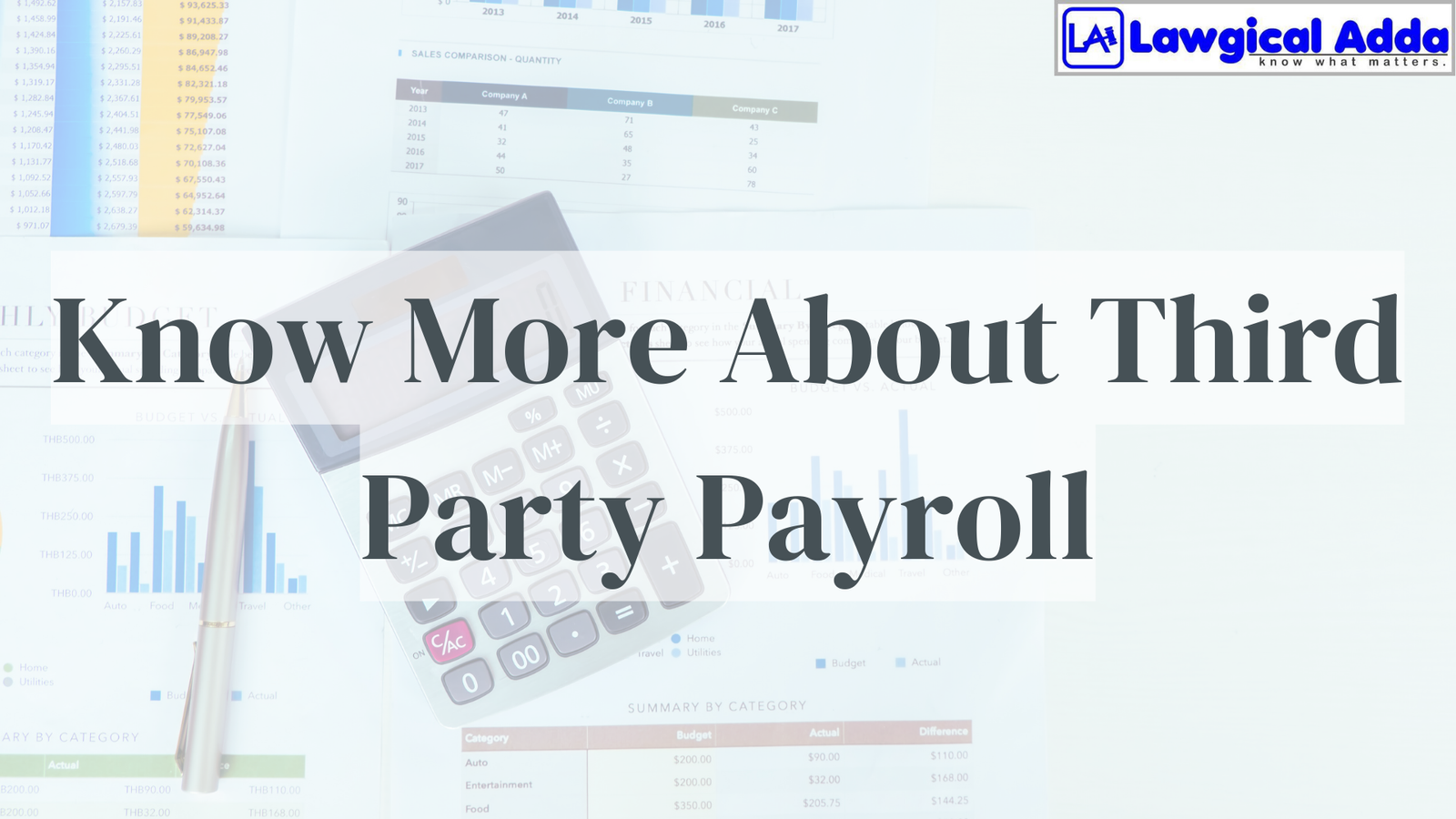Know More About Third Party Payroll

Table of Contents
In order to make it easier for salaries to be paid to specific employee accounts, payroll management entails the administration of several employee data. The salaries of each employee are credited when a list of those who need to be paid is created.
The HR, finance, and compliance departments must work together to create a unified payroll management platform in order for payroll to be successful.
Overview of Third Party Payroll
The procedure by which a company assigns another organisation the duty of paying its employees is known as third party payroll, or TPP. TPP services often entail working with a separate business to handle the payroll-related requirements of the enterprise.
This third-party provider is in charge of filing and overseeing payroll taxes in addition to doing all calculations pertaining to employee compensation.All of the conventional payroll duties, such calculating taxes, setting up direct payments, and issuing paychecks, are normally handled by the third-party payroll provider.
Together with payroll taxes, TPP also handles the completion and submission of any relevant state and local taxes. Additionally, TPP provider businesses offer a wide range of services, including managing employee benefits, employee onboarding, and employee auto-deposit contributions.
Who Hires Third Party Payroll?
The question of who employs third party payroll goes beyond simple work outsourcing! Finding solutions that meet the particular requirements of organisations becomes the focus. For a variety of reasons, businesses use third-party payroll services in an effort to streamline and improve the effectiveness of their operations.
To begin with, there are those businesses who are struggling with the intricacies of internal payroll management. It can be very stressful to deal with the tax man, employee perks, and salary arrangements. As a result, they provide the keys to outside professionals who are payroll gurus and who understand payroll inside and out.
Then there are companies that just lack the infrastructure or resources necessary to manage payroll in-house. They understand that hiring a third party to handle outsourcing is both sensible and economical.
By doing this, companies may direct their resources towards growing their company or making investments in other sectors, where they are most required.The flexibility that third-party payroll provides is another important benefit.
Third party payroll services meet a wide range of employment demands, whether they be from contract workers or temporary employees. This flexibility helps not just firms but also people who want to work for respectable organisations or acquire experience. Furthermore, a number of sectors, including retail, finance, hospitality, and IT, significantly depend on third-party payroll services.
Advantages of third party payroll services
There are various reasons why businesses might choose to use third-party payroll services. Here is a list of a few of the more well-known ones:
Time savings: Handling payroll internally requires a lot of time and resources. Businesses can free up critical time and resources that would be better used on other aspects of the company by contracting out payroll services to a third party provider.
Savings: Managing payroll internally can sometimes be expensive. Because of their economies of scale, third-party payroll providers can usually provide their services to businesses for less money than they could on their own. Companies can also save money by outsourcing payroll and avoiding the expenses of recruiting and onboarding new employees.
Knowledge: Third-party payroll outsourcing companies frequently possess a wealth of knowledge and experience in the payroll industry. Businesses can take advantage of this knowledge and guarantee accurate and effective payroll management by employing their services.
Compliance: There are numerous legal and regulatory obligations in the complicated field of payroll. Businesses can make sure that their payroll complies with all applicable laws and regulations by working with a third-party provider.
Flexibility: Third-party payroll providers frequently provide a large range of services, including online payroll information access, direct payment, and other technologies that can improve the effectiveness of payroll management.
Data Security: Third-party payroll providers have the necessary mechanisms in place to guarantee the safety and security of your company’s sensitive data. They are professionals at managing data security.
Scale: Payroll for organisations of all sizes, from startups to multinational corporations, can be managed by third-party payroll outsourcing services. They possess the infrastructure and resources necessary to adapt to the needs of a growing business.
Technology Access: To handle payroll, third-party payroll companies usually employ cutting-edge software and technology. Numerous labor-intensive manual payroll procedures, including tax calculations, paycheck generation, and employee hour tracking, can be automated by this programme.
Enhanced Worker satisfaction: Hiring a third party company to handle payroll might enhance worker happiness. Employees that have a dependable and effective payroll process receive their paychecks on schedule and accurately, which helps foster loyalty and trust among coworkers.
The employer also benefits financially in a number of ways. Tell us when the payroll administration system upgrade is scheduled to happen. Are you looking for a comprehensive management solution that will ensure accurate accounting for things like payroll, taxes, and attendance? You can get payroll management services from Lawgical Adda.
FAQs
- What distinguishes a payslip from a payroll?
Payroll is the process of distributing salaries to each employee, and a payslip is a record that includes the individual’s classification, the month of payment disbursement, and the amount of compensation they received.
- What distinguishes compensation from payroll?
The act of depositing pay into employee accounts is known as payroll, and compensation is a particular part of pay that lists the benefits or allowances for which an employee is qualified.
- Can someone join on the payroll of a third party?
Incorporating a third-party payroll solution can yield advantages for employers and employees alike. Employers may focus on other business-related matters with more time on their hands because they know that accuracy and compliance are guaranteed. Payroll procedures that are safe and effective can help employees.



